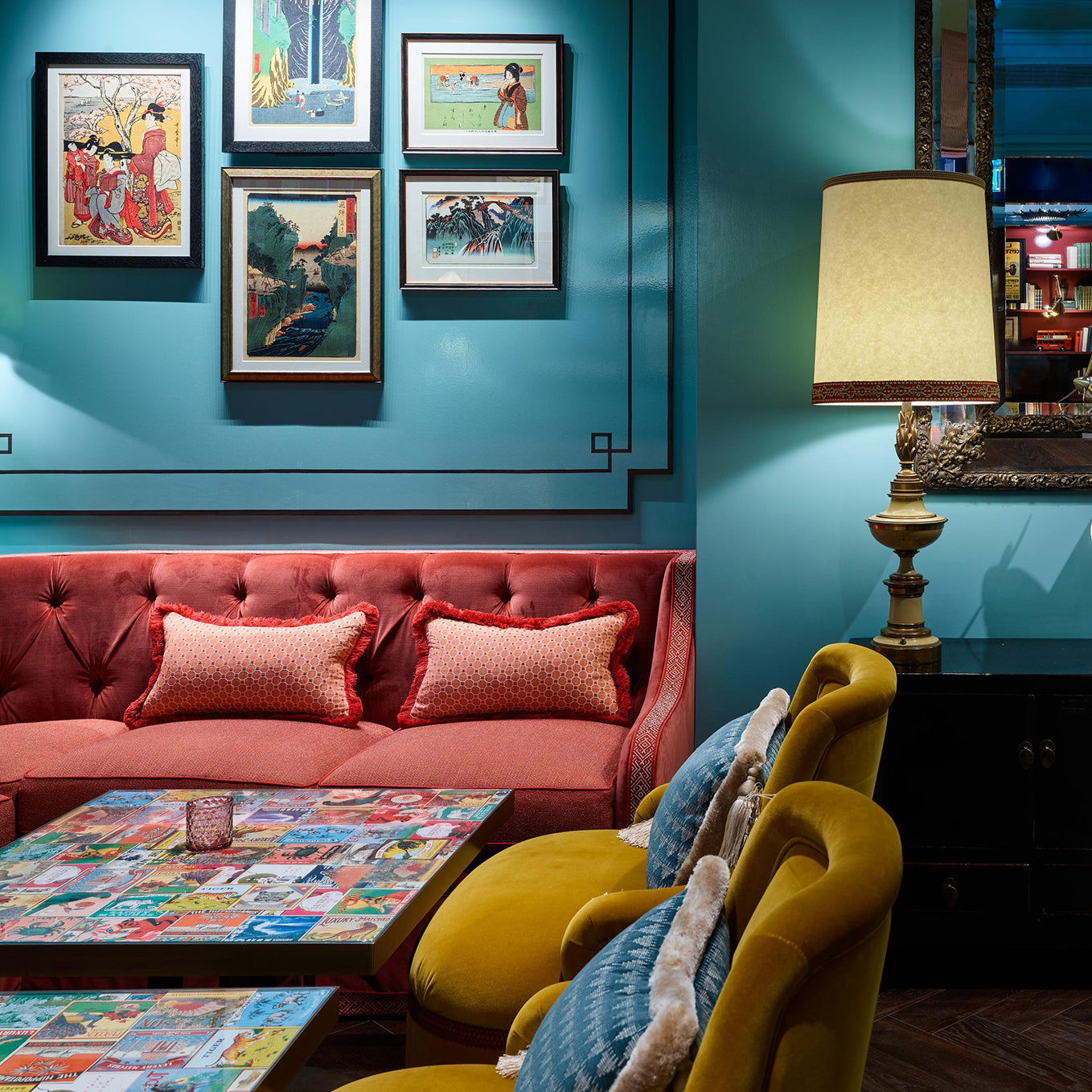THROUGH THE FAWN LENS
North Facing Blues? How to Choose the Best Paint Colour for any Room Direction
When choosing colours and schemes for your rooms, it is well worth first ascertaining which direction your room faces as the light can make a huge difference on how those colours will actually look once on the walls. Using paint with high pigments of colour does help keep the colour more consistent, but it will still be affected by the light direction. One tip is to paint large boards (A4 or even A3) with the colours you want to use and move them around the room at different times of the day to see how they react to changing light. As well as doing that, here is our guide for the best approach for each room direction to make the most of your light.
North-facing rooms receive the least amount of direct sunlight throughout the day, making them the most susceptible to the effects of natural light on paint colours. The cool, diffuse light that enters north-facing rooms tends to make colours appear darker, cooler, and less vibrant. This is especially true for warm colours, which may appear muted or dull in the absence of warm sunlight.
Warm Colours:
Warm paint colours, such as yellows, oranges, and reds, may appear dull or lifeless in the cool, diffused light of a north-facing room. This is because the lack of warm sunlight prevents these colors from reflecting their true vibrancy. However, introducing warm accents, such as artwork, furniture, or textiles, can help to balance out the coolness of the room and add a touch of warmth.
Cool Colours:
Cool paint colours, such as blues, greens, and purples, tend to thrive in the cool, diffused light of a north-facing room. They appear deeper, richer, and more sophisticated in this environment. However, be mindful of using extremely dark shades of cool colours, as they can make the room feel even cooler and smaller.
Neutral Colours:
Neutral paint colours, such as whites, blacks, and grays, are versatile options for north-facing rooms. Whites will reflect the cool light, making the room feel brighter and more spacious. Blacks will add drama and contrast, while grays will provide a neutral backdrop that can be easily complemented by colourful accents.
Image from Historika Hem
South-facing rooms receive the most direct sunlight throughout the day, making them particularly susceptible to the effects of natural light on paint colours. The intensity and warmth of the sunlight tend to wash out paint colours, making them appear lighter and brighter. This is especially true for darker colours, which may appear almost muted or chalky in the harsh midday sun.
Warm Colours:
Warm paint colours, such as yellows, oranges, and reds, are significantly intensified by the strong, warm sunlight in south-facing rooms. This can create an incredibly vibrant and energetic atmosphere. However, the intensity of these colours may become overwhelming or overpowering, especially in rooms with large south-facing windows.
Cool Colours:
Cool paint colours, such as blues, greens, and purples, are often tempered by the warm sunlight in south-facing rooms, making them appear less stark and more inviting. The warmth of the sunlight can even add a subtle hint of warmth to these colours, creating a more harmonious and balanced palette.
Neutral Colours:
Neutral paint colours, such as whites, blacks, and grays, are often chosen for south-facing rooms due to their ability to reflect and absorb light without becoming too overpowering. Whites will appear incredibly bright and airy, while blacks will add dramatic contrast and depth to the space. Grays will fall somewhere in between, providing a versatile and elegant backdrop for furnishings.

Image via Pinterest
West-facing rooms receive warm, golden sunlight in the late afternoon and evening, while they experience cooler, softer light in the morning hours. This contrast in lighting conditions can significantly impact how paint colours appear throughout the day.
Warm Colours:
Warm paint colours, such as yellows, oranges, and reds, are accentuated by the warm, golden light that floods west-facing rooms in the late afternoon and evening. This can create a cosy and inviting atmosphere. However, in the morning hours, these colours may appear slightly duller and less vibrant due to the cooler, softer light.
Cool Colours:
Cool paint colours, such as blues, greens, and purples, may appear slightly darker and more muted in the warm, golden light of a west-facing room in the late afternoon and evening. As the day progresses and the sunlight softens, these colours will gradually brighten and become more prominent.
Neutral Colours:
Neutral paint colours, such as whites, blacks, and grays, are versatile options for west-facing rooms. They tend to be less affected by the changing natural light, maintaining a consistent appearance throughout the day. However, warm neutrals may appear slightly warmer in the evening hours, while cool neutrals may appear slightly cooler in the morning hours.
Image via Pinterest
East-facing rooms, which receive ample morning sunlight but limited afternoon and evening light, paint colours tend to appear brighter and cooler in the morning hours and gradually shift towards a warmer, flatter tone as the day progresses.
Warm Colours:
Warm paint colors, such as yellows, oranges, and reds, tend to be intensified by the cool morning light in east-facing rooms. This can create a vibrant and energetic atmosphere. However, as the sunlight fades, these colours may appear less vibrant and slightly duller.
Cool Colours:
Cool paint colours, such as blues, greens, and purples, may appear slightly darker and more muted in the morning light of an east-facing room. As the day progresses and the sunlight softens, these colors will gradually brighten and become more prominent.
Neutral Colours:
Neutral paint colours, such as whites, blacks, and grays, are versatile options for east-facing rooms. They tend to be less affected by the changing natural light, maintaining a consistent appearance throughout the day.

Image from Homes & Gardens
MORE FROM THE FAWN DESIGN CIRCLE

Countryside Elegance in the City: Stylish Hotels Bringing Rural Charm to London Interiors




